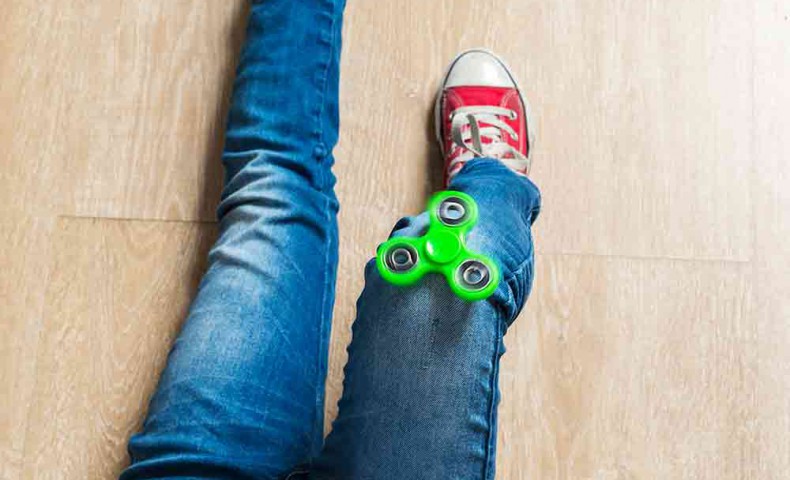
You may have seen fidget spinners in the hands of children, teenager and even some adults. While they’ve become a popular toy, many people use it a stress reliever as a replacement for fidgeting with pencils, stress balls, pens or coins. Other ways people fidget include bouncing legs or tapping your feet or fingers. Lindsay Henderson, Psy.D., a psychologist who treats using LiveHealth Online shared with us reasons and benefits of fidgeting plus how fidget spinners may impact these benefits.
4 Benefits of Fidgeting
- Foot tapping or bouncing your legs while you’re fidgeting may strengthen your heart by keeping blood flow going strong while sitting, especially given how much prolonged time many of us spending sitting each day.
- Fidgeting can burn more calories throughout the day because you’re moving more.
- For some people who may struggle with paying attention (such as those with ADHD), movement can increase their alertness, help them stay tuned in, and help perform better on cognitive tasks by occupying parts of their brain that may otherwise be distracted by random thoughts.
- Fidgeting may serve as a type of ritual for many people, which can have a comforting and grounding effect by offering predictability, familiarity, and structure.
Why You May Not Need a Fidget Spinner to Get These Benefits
- Many of the health benefits studied, particularly the vascular benefits related to keeping blood flow going while sitting for prolonged periods, relate to lower-body fidgeting (tapping feet, bouncing legs), and not necessarily playing with fidget toys.
- For those who truly see cognitive benefits from fidgeting, the activity does not distract them and simply helps them narrow their focus and attend more careful to the tasks at hand. For many other children and adults who do not need this type of tool, or for those that employ the wrong type of fidget tool, fidgeting can serve as a large distraction and defeats the purpose they are seeking.
- You do not necessarily need a toy to fidget effectively. In fact, many fidget toys can be obtrusive enough to distract both the person fidgeting and those around them. People fidget successfully all day everyday all around us without us even noticing because they do so in a way that is not noticed by observers.
Comments and opinions are from Lindsay Henderson, PsyD, alone. She is a licensed-therapist who treats patients using LiveHealth Online Psychology.
Recommended Posts




